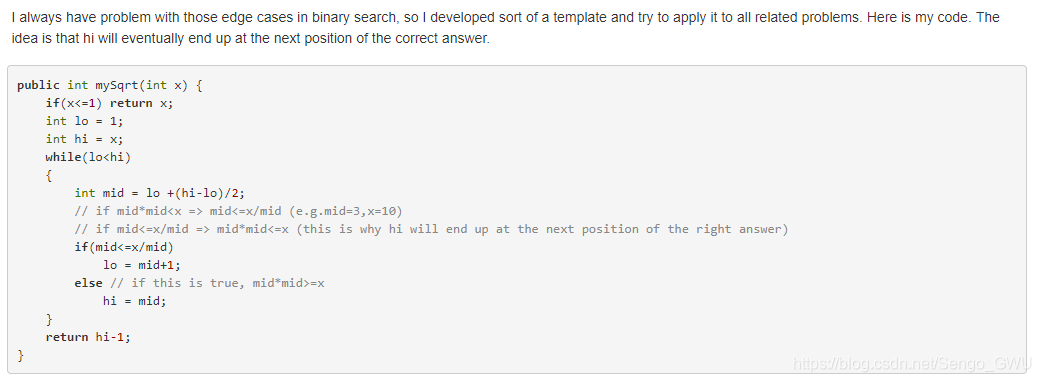
标准的bs:
def binary_search(arr, target):
l, r = 0, len(arr) - 1
while l < r:
mid = l + (r - l) // 2
if arr[mid] < target:
l = mid + 1
else:
r = mid
return r # 返回的是右侧的
例子
【1,2,2,3】 target 2.1
返回的是3的位置
3453. Separate Squares I

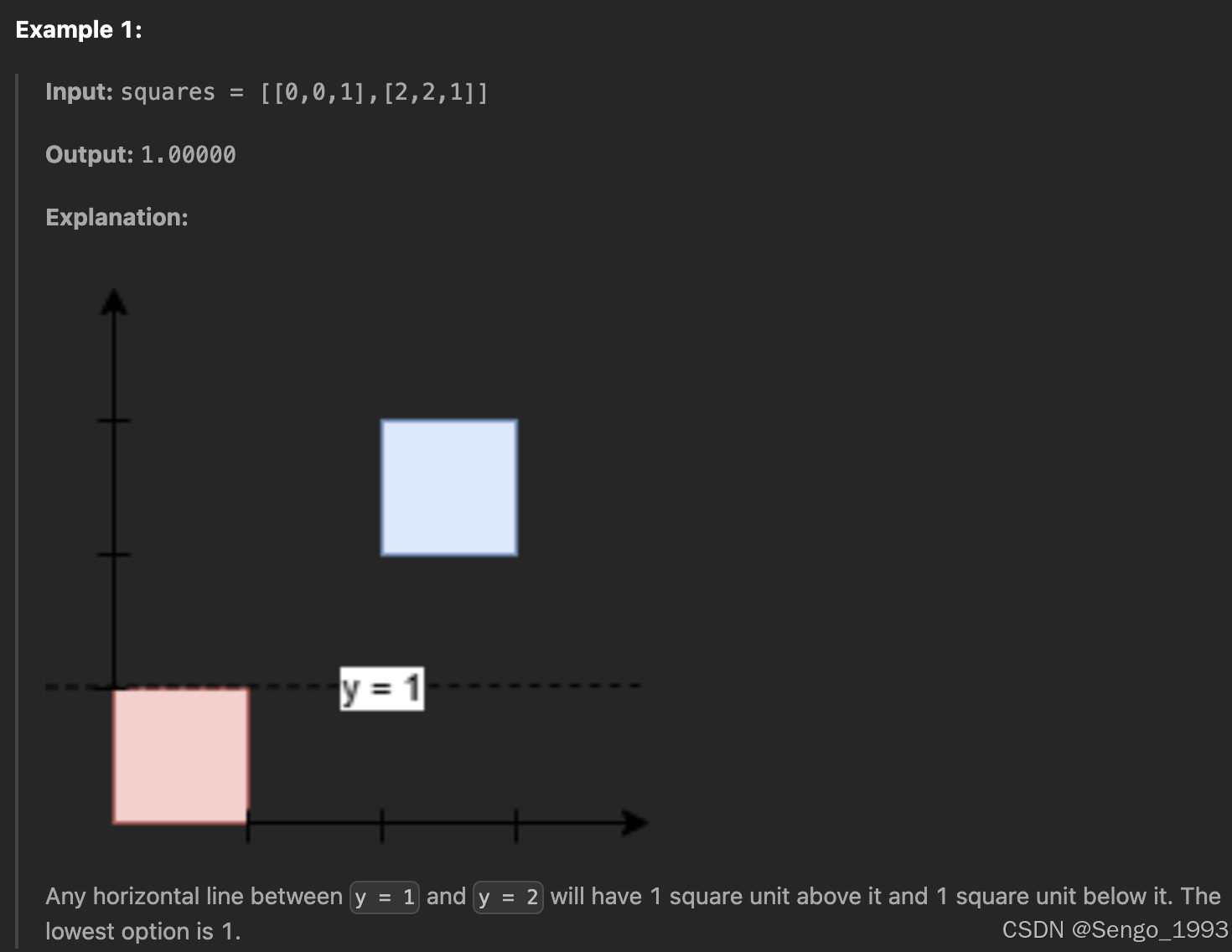
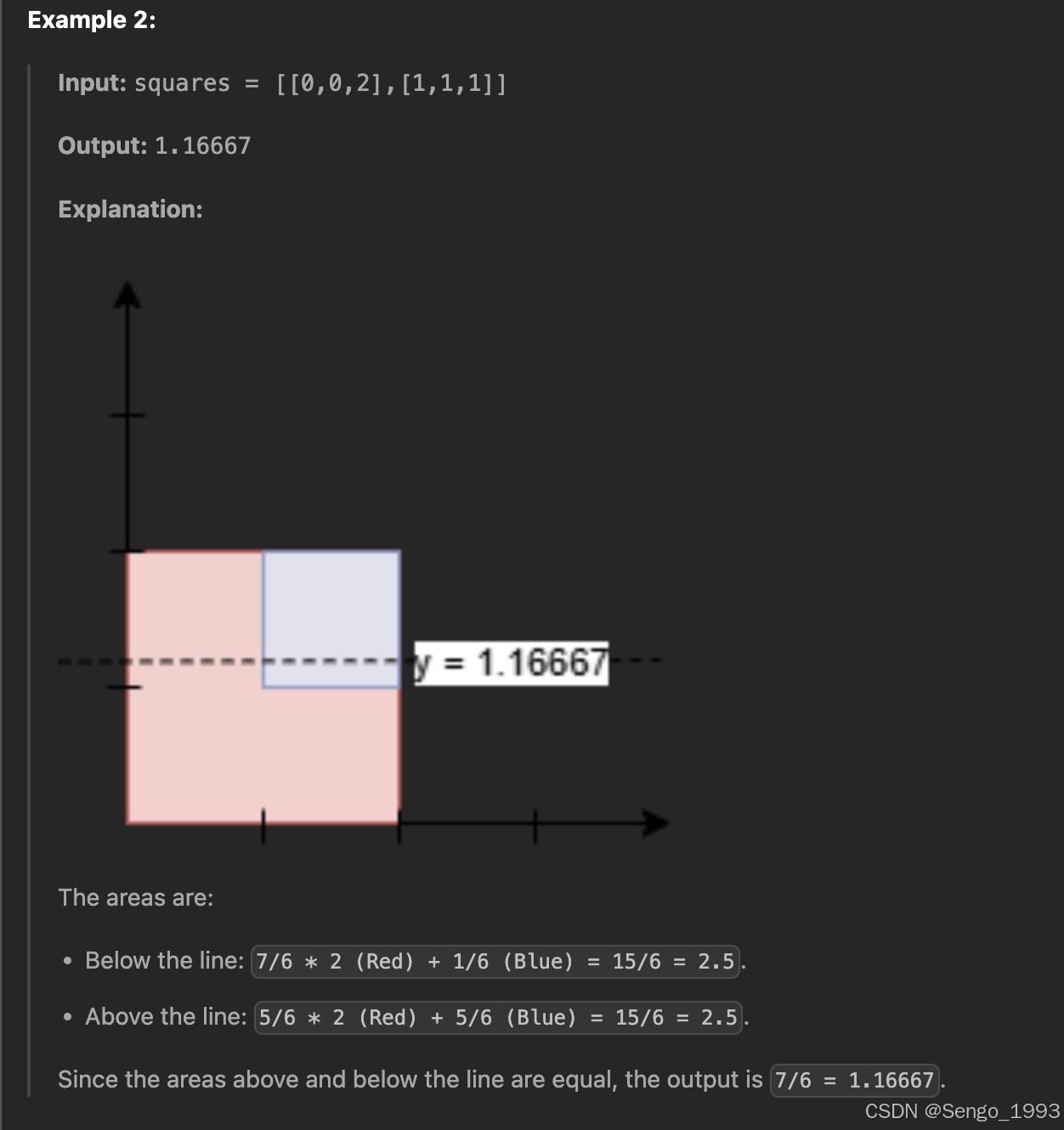
class Solution:
def separateSquares(self, squares: List[List[int]]) -> float:
# https://leetcode.com/problems/separate-squares-i/?envType=company&envId=google&favoriteSlug=google-thirty-days
# Instead of checking the interval width directly, you can perform a fixed number of iterations say 60. Each iteration halves the search interval, guaranteeing that after a sufficient number of iterations, the interval is extremely narrow.
# After each iteration, the width is halved. After 60 iterations, the width becomes: W/2^60
def helper(line, squares):
total = 0.0
above = 0.0
for x, y, l in squares:
total += l*l
if line <= y: # line is below square
above += l*l
elif line < y + l: # line intersects theh square
above += ((y+l) - line) * l
return above - (total - above) # above - below
lo = 0
hi = 2*1e9
# loop all the squares to find the low and high
for x, y, l in squares:
lo = min(lo, float(y))
hi = max(hi, float(y) + l)
# binary search
for _ in range(60):
mid = (lo + hi) / 2.0
diff = helper(mid, squares)
if diff > 0: # above > below
# line should increase
lo = mid
else:
hi = mid
return hi
875. Koko Eating Bananas
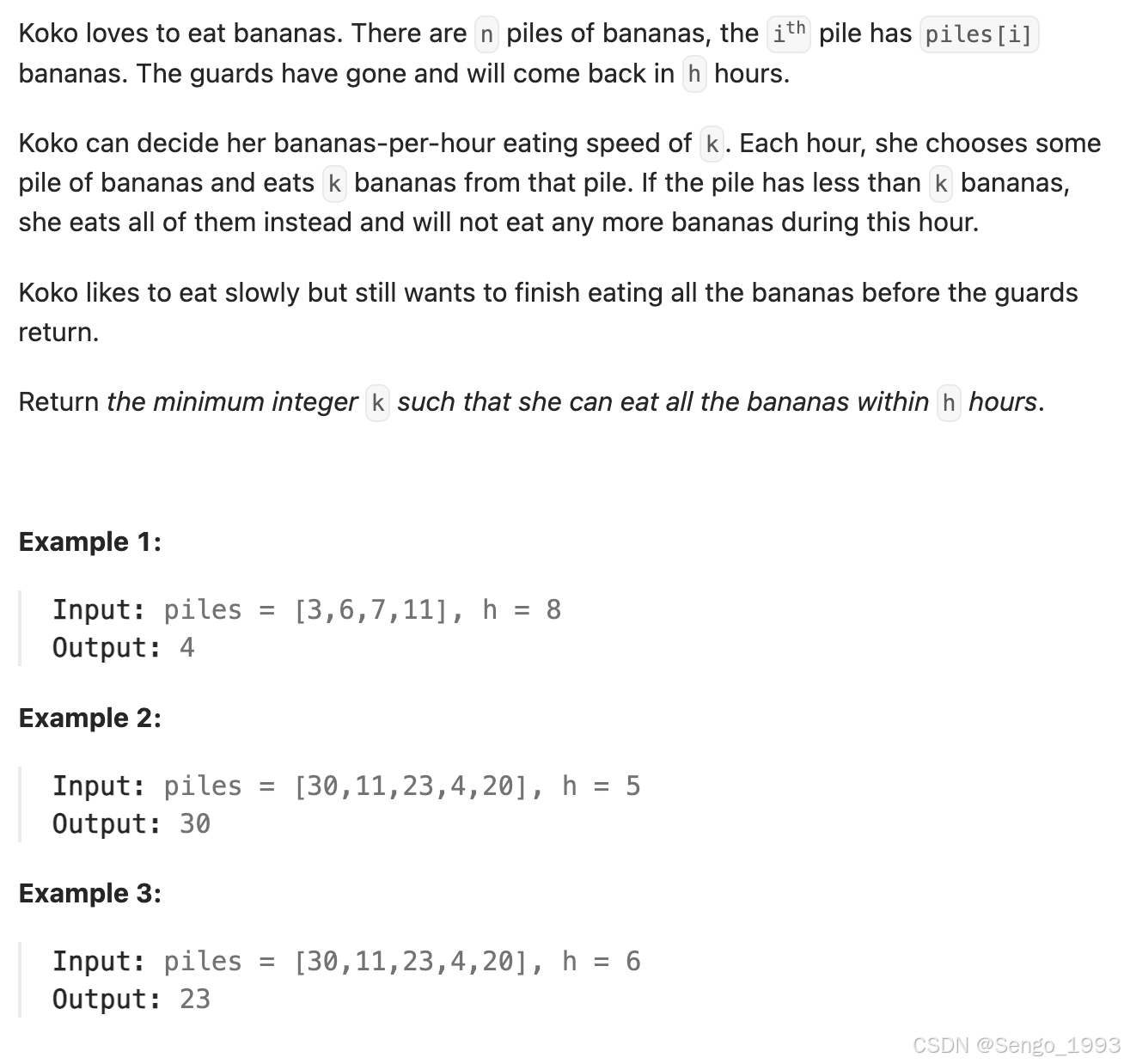
class Solution:
def minEatingSpeed(self, piles: List[int], h: int) -> int:
def countDays(piles, k):
h = 0
for p in piles:
h += math.ceil(p / k)
return h
l, r = 1, max(piles)
while l < r:
mid = (l + r) // 2
countH = countDays(piles, mid)
if countH <= h:
r = mid
else:
l = mid + 1
return l
1011. Capacity To Ship Packages Within D Days
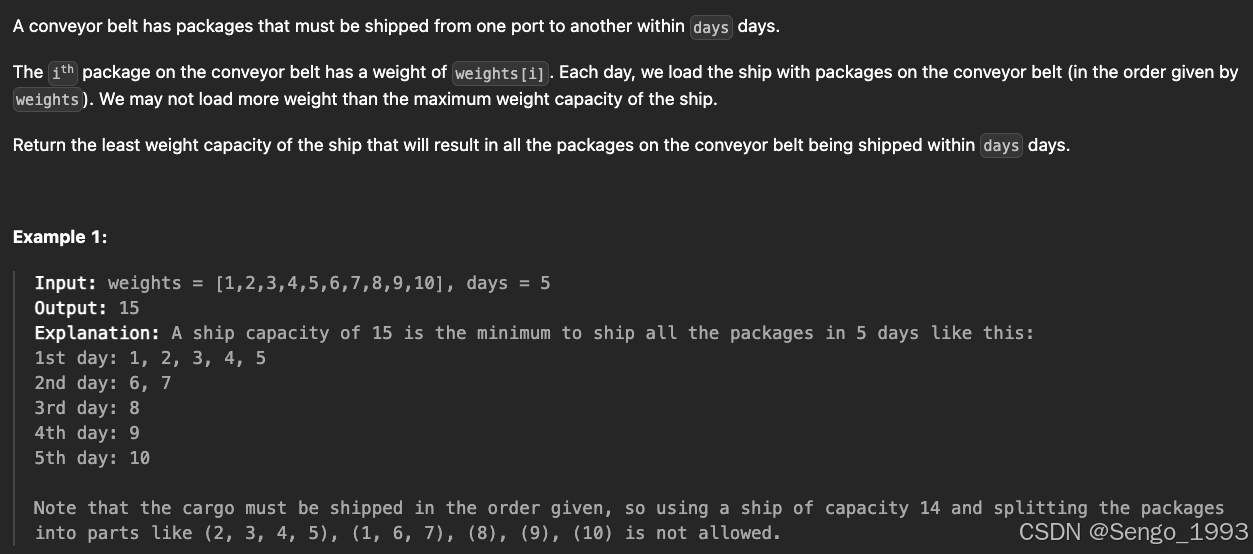
class Solution:
def shipWithinDays(self, weights: List[int], days: int) -> int:
# binary search 最小的capacity 从最大的重量开始,因为船至少得运得了它
l, r = max(weights), sum(weights)
while l < r:
mid = (l+r) // 2
curLoad = 0
needDay = 0
for w in weights:
if curLoad + w > mid:
needDay += 1
curLoad = 0
curLoad += w
if curLoad > 0:
needDay += 1
if needDay > days:
l = mid + 1
else:
r = mid
return l
1885. Count Pairs in Two Arrays
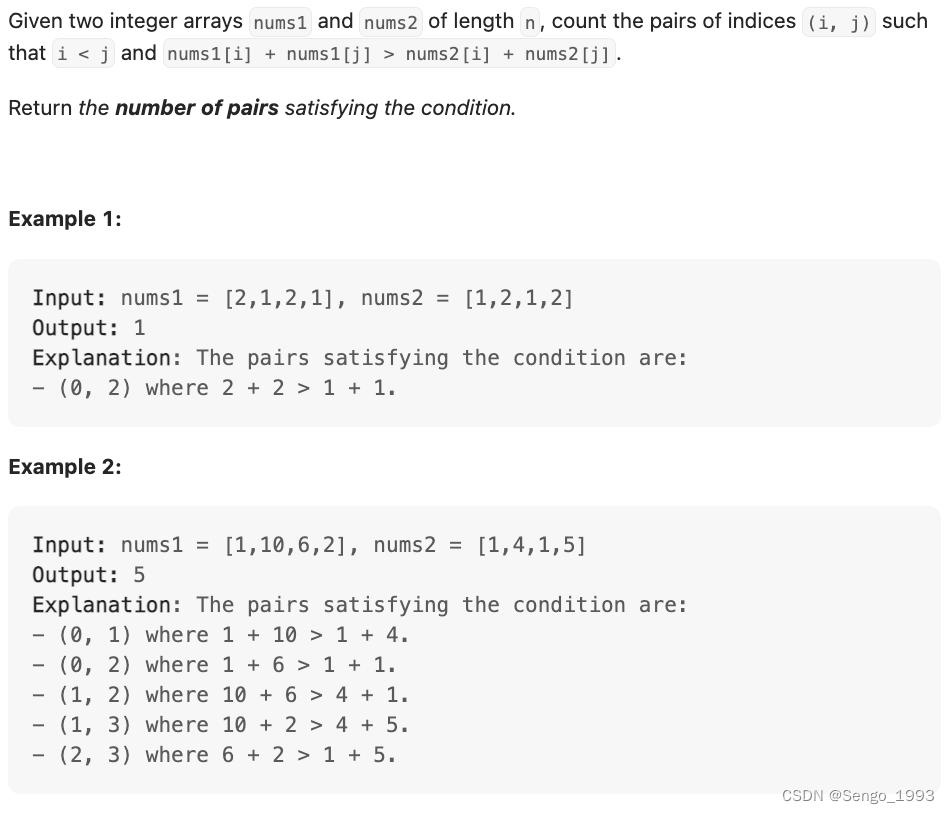
class Solution:
def countPairs(self, nums1: List[int], nums2: List[int]) -> int:
'''
nums1[i] + nums1[j] > nums2[i] + nums2[j] is the same as (nums1[i] - nums2[i]) + (nums1[j] - nums2[j]) > 0
So, if we define NUM = [nums1[0]-nums2[0], nums1[1]-nums2[1], ...],
This problem can be rewritten as:
How many (i, j) pairs with i < j that NUM[i] + NUM[j] > 0
Given a value x, count the number of y in the nums that satisfies (y + x > 0) -> Binary search
Time: n*log(n)
Space: O(n) if we copy the given nums, or O(1)
'''
nums = [x-y for x, y in zip(nums1, nums2)]
re = 0
nums.sort()
def binary(target):
l, r = 0, len(nums)
while l < r:
mid = (l+r) // 2
if nums[mid] < target:
l = mid + 1
else:
r = mid
return l
# print(nums)
for i, x in enumerate(nums):
target = 0 - x + 0.1
idx = binary(target)












 最低0.47元/天 解锁文章
最低0.47元/天 解锁文章

















 1162
1162










